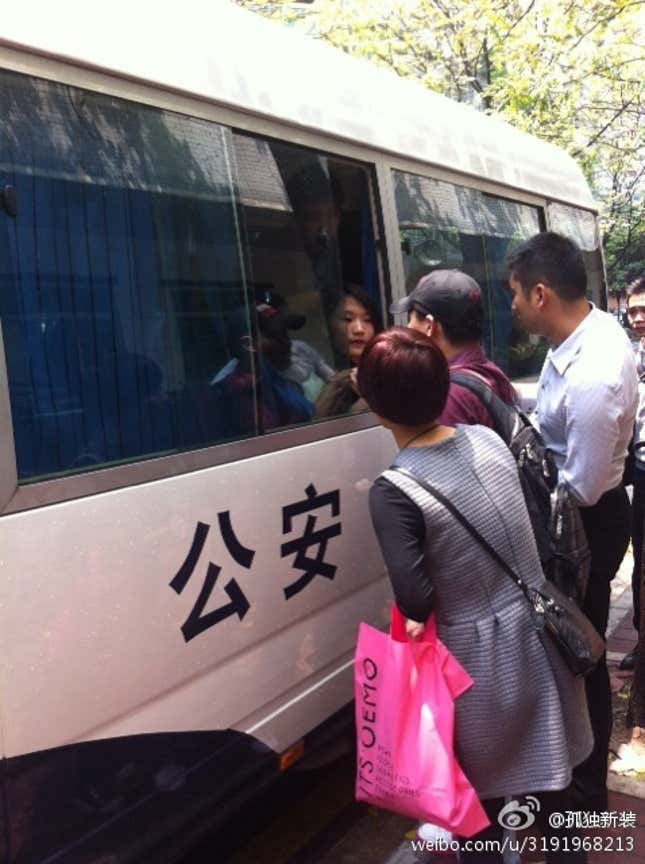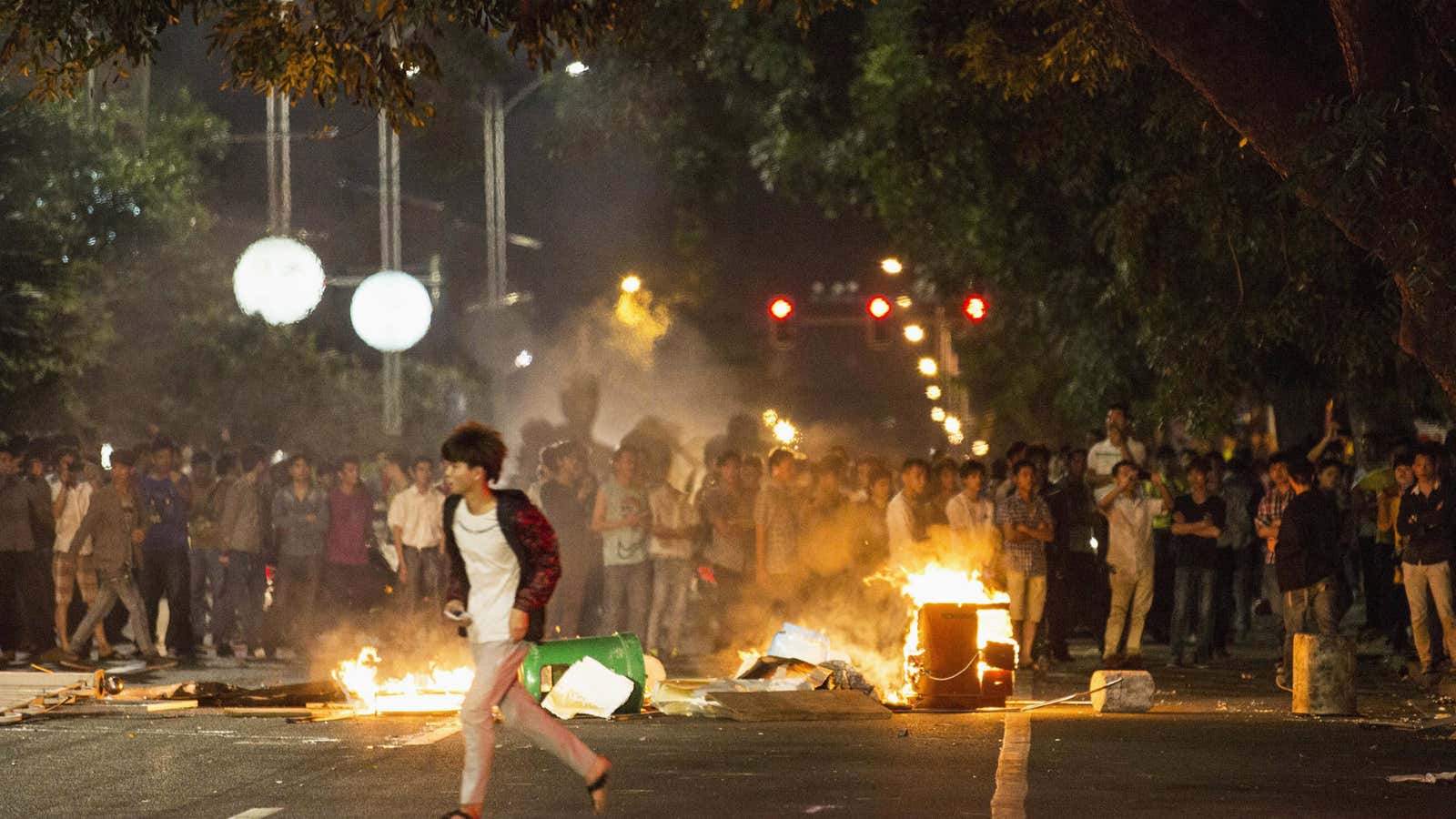China’s state media have been openly reporting on recent protests, even as censors have been scrubbing news about them from social media.
The protests, over the planned construction of a chemical plant in the southern city of Maoming, began there and spread to Guangzhou. More than 1,000 locals have protested in front of Maoming’s government building, in scenes that reflect growing public opposition across China to projects deemed dangerous or polluting,” state news agency Xinhua reported April 2. Protestors smashed windows and billboards in their anger, the report said. The state-run Global Times described a peaceful protest in Guangzhou on April 1, but said that some citizens allege local government forced “workers and students” to sign a letter stating they approved of the chemical plant, which would make paraxylene, commonly called “PX.”
Despite the unusually candid state coverage, though, free discussion of the topic on social media was verboten. Government censors started taking down search pictures from Sina Weibo over the weekend. Search engine results related to “Maoming PX” started disappearing late in the evening of April 1, reports Fei Chang Dao, a free speech blog. On April 2, searchers looking for even “PX” on Sina Weibo, the microblogging service, saw “According to relevant laws, regulations and policies, ‘PX’ search results are not displayed.” On Baidu, China’s most prominent search engine, searches for Maoming returned a broadcast video explaining that the government planned to consult the public on the project, but no other reports on the protests.
Still, Chinese netizens continue to post information and images on the topic, according to FreeWeibo, a site that puts up copies of posts from the Sina Weibo microblogging platform and shows what has been deleted. “Maoming” was the most-discussed topic on Sina Weibo on April 3, according to FreeWeibo.
Quickly censored items include pictures of protestors being taken away by security…

…and angry messages protesting the online censorship, as well as a reproduction of the front page of the Oriental Daily, a Hong Kong paper, stating that 15 people had been killed and 300 injured in the protests—though no other foreign or local media corroborated the figure.
The situation is a good example of the paradox that the Chinese government faces when it tries to acknowledge citizens’ frustrations with growing concerns like the environment, but still tries to censor what they can say, one censorship expert said.
“The Maoming incident is a perfect illustration of how difficult it is to draw the line on censorship in China,” said one of the founders of Greatfire.org, an anti-censorship group that created Freeweibo, and who goes by the pseudonym Charlie Smith, in an email to Quartz. On one hand, “environmental concerns are very real and the central authorities want to let this discussion happen openly,” he said. But on other, hand, the protests on Maoming were “more than just a case of a NIMBY protest turned violent – it’s a collective expression of exasperation with overbearing censorship restrictions.”
This June 4 marks the 25th anniversary of the bloody end of the Tiananmen Square protests, a fact that Chinese censors are surely aware of, Smith said. But, Smith said, “when you delete all meaningful discussion on every social media platform, you unintentionally end up simultaneously creating and fueling the biggest story of the year at the most inopportune time.”
